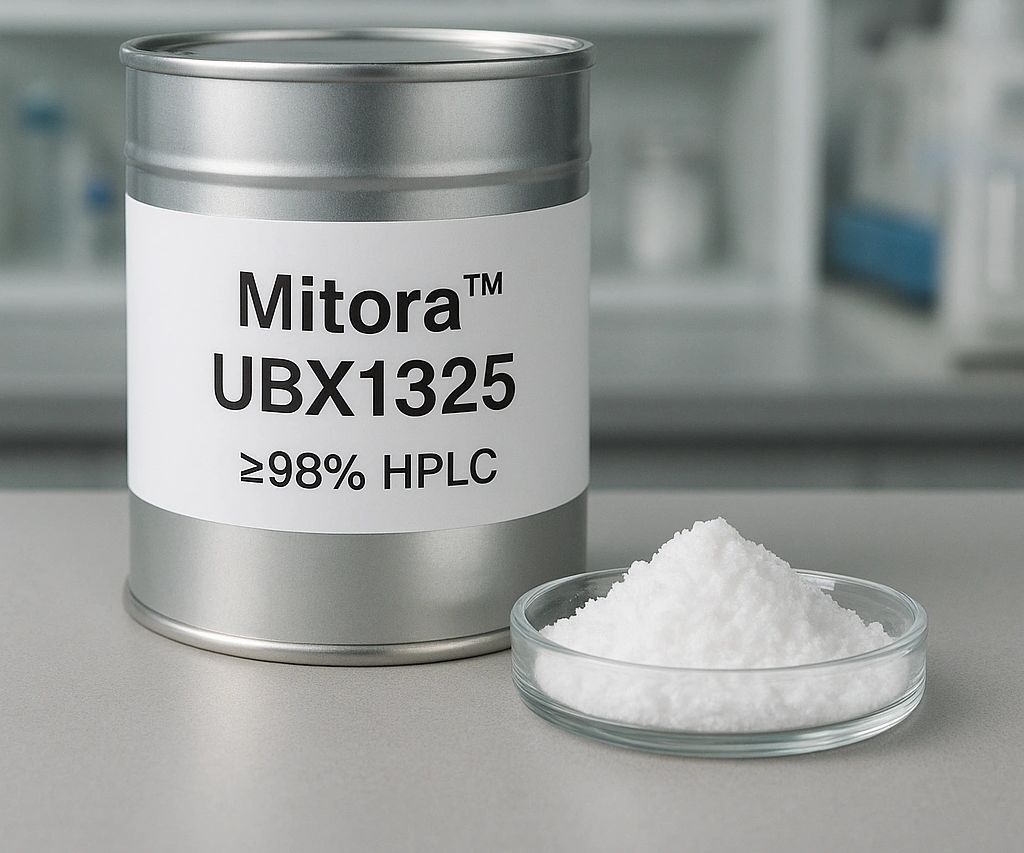Accumulating experimental evidence suggests Fisetin in combination with Dasatinib-Quercetin impacts vital oncogenic pathways to restrain tumor growth and proposes a viable therapeutic direction
Navitoclax (ABT-263): Blocking Antiapoptotic BCL-2 in Cancer
ABT-263’s pharmacology focuses on blocking antiapoptotic BCL-2 activity to promote cell death in tumors that exploit BCL-2 overexpression for persistence
Preclinical Perspectives on UBX1325 as a Potential Cancer Therapeutic
Preclinical studies of UBX1325 evaluate its anticancer potency across multiple cell types and animal systems, revealing promising tumor suppression signals
Fisetin and the Challenge of Drug Resistance — Research Perspectives
Drug resistance remains a major barrier to successful therapy, and mounting evidence suggests Fisetin may modulate multiple resistance pathways to restore drug sensitivity
- Moreover, studies indicate Fisetin can downregulate resistance-associated proteins and effector enzymes to blunt adaptive survival responses
- Investigations indicate Fisetin promotes sensitization of tumor cells to treatment regimens, aiding in overcoming resistance
Overall, Fisetin’s impact on resistance biology supports its candidacy for combinatorial therapy development to improve outcomes
Combined Impact of Fisetin with Dasatinib-Quercetin on Cancer Cell Viability
Laboratory findings reveal that Fisetin augments the anticancer impact of Dasatinib-Quercetin, together producing greater tumor cell killing
Continued experimental work should define the signaling networks and pharmacologic parameters that enable maximal synergistic benefit
Combinatorial Therapeutics: Integrating Fisetin with Navitoclax and UBX1325
A combinatorial framework incorporating Fisetin, Navitoclax and UBX1325 as complementary modalities aspires to broaden efficacy relative to single-agent therapy
- Fisetin’s pleiotropic actions contribute to its candidacy as an adjunct in combination oncology
- Navitoclax’s role as a pro-apoptotic facilitator supports its inclusion in multi-agent approaches
- This small molecule demonstrates properties such as angiogenesis inhibition and antiproliferative effects supportive of combination use
A multi-targeted regimen combining these agents may overcome single-agent limitations and extend clinical benefit
Fisetin-Mediated Pathways Driving Antitumor Activity
Experimental data show Fisetin engages multiple molecular targets to arrest growth, activate death pathways and reduce tumor angiogenesis and spread
Ongoing mechanistic research aims to resolve the specific targets and pathways Fisetin engages to guide therapeutic optimization
Synergistic Potential of Dasatinib and Quercetin for Cancer Therapy
Dasatinib and Quercetin co-administration has demonstrated potentiated anticancer activity, suggesting translational exploration may be warranted
- Defining the mechanistic framework of this synergy will inform dose scheduling and patient selection for future trials
- Clinical development plans are considering trials to determine safety profiles and potential benefits of the combination in relevant indications
- Strategic combinations of precision and pleiotropic agents offer a route to more effective therapeutic regimens
Thorough Evaluation of Preclinical Data on the Trio of Anticancer Candidates
A detailed appraisal of experimental data supports continued investigation of these candidates and their possible combinatorial uses in oncology
- Thorough preclinical characterization will determine whether Fisetin co-therapies offer favorable risk-benefit profiles for clinical translation Investigations focus on identifying combinations where Fisetin augments anticancer potency while minimizing adverse effects across models Thorough preclinical characterization will determine whether Fisetin co-therapies offer favorable risk-benefit profiles for clinical translation
- The flavonoid’s antitumor profile in preclinical studies positions it as a promising adjunct for combination regimens
- Dasatinib-Quercetin co-treatment shows promise by engaging distinct molecular mechanisms that collectively impair tumor viability
- Preclinical profiling of UBX1325 indicates it can inhibit tumor growth through mechanisms such as angiogenesis suppression and induction of cellular stress
Tackling Resistance to Navitoclax with Multimodal Regimens
Although Navitoclax demonstrated preclinical promise, clinical results have been limited in some contexts due to emergent resistance, prompting exploration of combinatorial remedies
Characterizing Safety and Activity of Fisetin Combinations
Preclinical studies aim to determine if Fisetin combinations potentiate tumor cell killing without introducing prohibitive toxicity in vitro and in vivo
